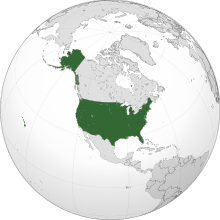The United States of America (USA) is a name that resonates with power, freedom, and democracy. But have you ever wondered why it is called the USA? This name carries significant historical, political, and cultural implications. To understand the origins of this name, we need to delve into the early history of the country, the formation of its political structure, and the aspirations of its founding fathers.
Table of Contents
The Concept of United States
The term “United States” itself is quite telling. The idea of a “united states” implies a collection of states that have come together to form a single entity. This concept was not unique to America; it was inspired by various confederations and unions throughout history. However, in the context of America, it represented a new experiment in governance and democracy.
Colonial Origins
Before the formation of the USA, the land was inhabited by various indigenous tribes and later colonized by European powers, primarily England, Spain, and France. The thirteen British colonies on the eastern coast of North America, established during the 17th and 18th centuries, were the precursors to the modern United States.
The Road to Independence
The name “United States of America” emerged during the struggle for independence from British rule. The desire for self-governance and the principles of liberty and justice were central to the American Revolution.
The Declaration of Independence
The Declaration of Independence, adopted on July 4, 1776, was a pivotal document in American history. Drafted primarily by Thomas Jefferson, it declared the colonies’ intention to break free from British rule. The declaration referred to the new nation as the “United States of America,” marking the first official use of the name.
The choice of “United States” was deliberate. It emphasized the union of the thirteen colonies as equal partners in the creation of a new nation. The term “America” was derived from Amerigo Vespucci, an Italian explorer whose name was used to label the New World on early maps. Combining these terms, the founders sought to convey a sense of unity and identity distinct from European powers.
Formation of the Government
The post-independence period was crucial for solidifying the identity of the United States. The Articles of Confederation, adopted in 1781, were the first constitution of the new nation. However, they proved to be ineffective in creating a strong central government.
The Constitutional Convention
In 1787, the Constitutional Convention was held in Philadelphia to address the weaknesses of the Articles of Confederation. The result was the drafting of the United States Constitution, which established a federal system of government with a stronger central authority. The Constitution was ratified in 1788 and went into effect in 1789.
The preamble of the Constitution begins with “We the People of the United States,” reinforcing the notion of a unified nation composed of individual states. This language was chosen to underscore the unity and collective identity of the states as part of a single nation.

The Meaning of “America”
The term “America” in the name “United States of America” carries its own significance. It reflects the geographical and ideological scope of the new nation.
Geographic Significance
Geographically, America referred to the entire landmass of the New World, encompassing both North and South America. However, over time, the term “America” became synonymous with the United States. This shift was due in part to the growing influence and prominence of the United States on the global stage.
Ideological Significance
Ideologically, “America” represented the promise of a new beginning, free from the old-world constraints of monarchy and aristocracy. The founders envisioned the United States as a beacon of liberty, democracy, and opportunity. This vision was encapsulated in the name, symbolizing a break from the past and a commitment to a new set of ideals.
Evolution of the Name
Over the centuries, the name “United States of America” has evolved to embody various aspects of the nation’s identity.
National Identity
The name has become synonymous with the nation’s identity. It reflects the diversity of the states and their collective commitment to the principles of democracy and freedom. The “United States” emphasizes the unity and cooperation among the states, while “America” captures the broader vision of a land of opportunity and progress.
Also Read: Silicon Valley and Innovation America
Global Influence
On the global stage, the name “United States of America” carries significant weight. It represents a powerful nation with a considerable impact on international politics, economics, and culture. The name has become a symbol of the country’s role as a leader in promoting democratic values and human rights.
Conclusion.
The name “United States of America” is more than just a label; it is a reflection of the country’s history, aspirations, and identity. It encapsulates the journey from a collection of colonies seeking independence to a unified nation committed to the principles of liberty and democracy. The name serves as a reminder of the founders’ vision and the ongoing quest to fulfill the promise of a nation where all individuals have the opportunity to pursue life, liberty, and happiness.
Understanding why it is called the USA provides insight into the nation’s foundational values and the historical context that shaped its development. It is a name that continues to inspire and challenge the country to live up to its ideals and to strive for a more perfect union.


Leave a Comment